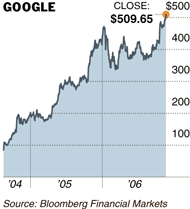BAGHDAD, Nov. 22 — More Iraqi civilians were killed in October than in any other month since the American invasion in 2003, a report released by the United Nations on Wednesday said, a rise that underscored the growing cost of Iraq’s deepening sectarian war.
According to the report, 3,709 Iraqis were killed in October, up slightly from the previous high in July, and an increase of about 11 percent from the number in September.
The figures, which include totals from the Baghdad morgue and hospitals and morgues across the country, have become a central barometer of the war here and a gauge of the progress of the American military as it tries to bring stability to this exhausted country.
A dangerous trend has surfaced: Sixty-five percent of all deaths in Baghdad were categorized as unidentified corpses, the signature of militias, who kidnap, kill and throw away bodies at a rate that now outstrips the slaughter inflicted by suicide bombers. The report did not offer a breakdown by sect, and it is impossible to tell who is dying in greater numbers.
Indeed, the 52 bodies found by the authorities on Wednesday were far more than the 16 Iraqis reported killed in Baghdad and Baquba, a violent city north of the capital.
“We have a situation in which impunity prevails,” said Gianni Magazzeni, chief of the United Nations’ Human Rights Office in Baghdad, which compiled the report. “It’s critically important for the government to ensure that justice is done.”
Even daily life spoke of war and a society in collapse. The report painted a portrait of social calamity that included 100,000 Iraqis a month fleeing to Syria and Jordan, and schools in some of the most violent areas of the country almost completely shut down. Areas that are not mixed — Iraq’s Kurdish north and portions of its Shiite south — were far safer.
The figures illustrate in stark percentages just how deeply the killing has sunk into Iraqi society. They had been a point of contention for the government of Prime Minister Nuri Kamal al-Maliki, which suppressed them in September after criticizing them as inflated. The American military has also criticized the figures as high, but it does not release statistics of its own.
President Bush and Secretary of State Condoleezza Rice are preparing for meetings next week with Mr. Maliki, in part to discuss the security situation in Iraq.
But the United Nations stands by the count, which tallies unclaimed bodies from Iraq’s approximately six morgues and from death certificates — required for burial and for inheritance procedures. If anything, the numbers are low. Figures from hospitals come from the Ministry of Health, which counts deaths only on the day of the attack. Victims who die a day later are not counted…


